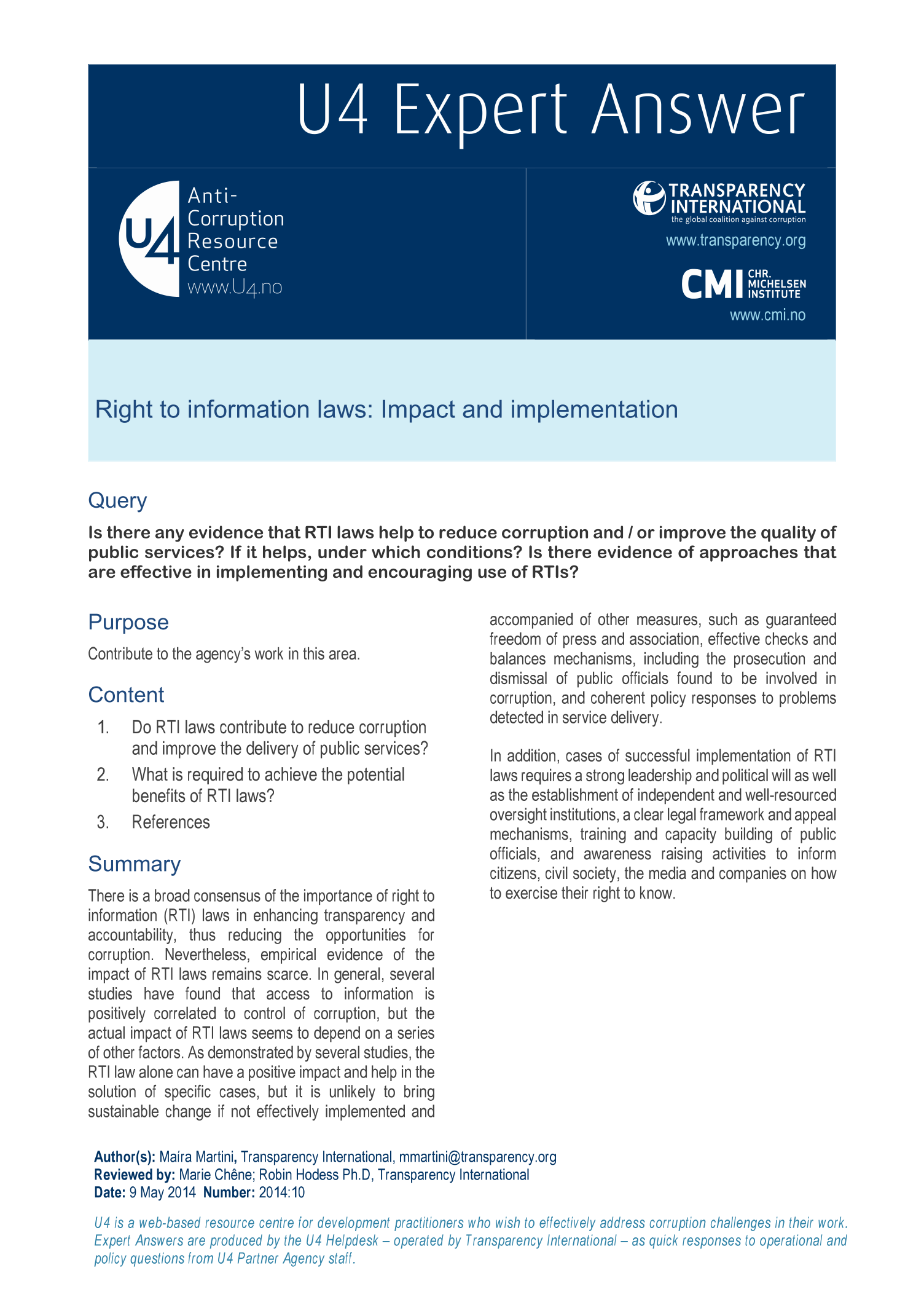U4 Helpdesk Answer
Right to information laws: Impact and implementation
Empirical evidence of the impact of RTI laws remains scarce. In general, several studies have found that access to information is positively correlated to control of corruption, but the actual impact of RTI laws seems to depend on a series of other factors. As demonstrated by several studies, the RTI law alone can have a positive impact and help in the solution of specific cases, but it is unlikely to bring sustainable change if not effectively implemented and accompanied of other measures, such as guaranteed freedom of press and association, effective checks and balances mechanisms, including the prosecution and dismissal of public officials found to be involved in corruption, and coherent policy responses to problems detected in service delivery.

Cite this publication
Martini, M. (2014) Right to information laws: Impact and implementation. Expert Answer 2014:10
Disclaimer
All views in this text are the author(s)’, and may differ from the U4 partner agencies’ policies.
This work is licenced under a Creative Commons Attribution-NonCommercial-NoDerivatives 4.0 International licence (CC BY-NC-ND 4.0)


